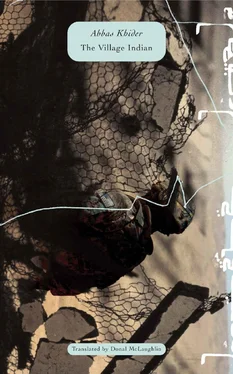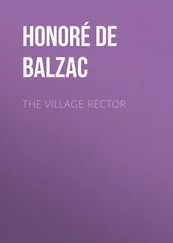And I succeeded. I spent a few years in various Arab countries in Asia and Africa until the day finally arrived when I could head for Europe. It was then that the greatest loss hit me. At the Turkey — Greece border. Near Edirne, on the Turkish side. I was travelling with about thirty refugees — Kurds, Turkmens, Persians, Afghans, Arabs, Africans, Pakistanis and a Kurdish people-smuggler. We stopped for a short break on a hill. Suddenly — out of nowhere — the border police were upon us. We ran as fast as we could. In all directions. I was running so frantically that I dropped my rucksack and it rolled down the slope. A policeman, who really could run, arrested me. Nodding at the valley, I tried to tell him that my rucksack was down there. It seemed to interest him very little. He dangled a weapon before me. And then began to beat me. When I came to, I was in a Turkish jail — again — and without my rucksack. It had a few tins of food, the little money I owned and a notepad in which, for three years, I’d been recording all my ideas — three years of poetry between Asia and Africa. What a loss! I think, sometimes, that everything I write now is nothing but what I’d written back then. As if I am rewriting everything I’ve lost.
My escape came to an end in Germany. Since then, I’ve been living in Munich mainly. Many of my earlier writings reached me by post — things that friends from Asia, Africa and Europe had kept for me. To prevent further losses, I decided to publish as much as I could. Since I’ve been in Munich, my reading and writing habits have also changed. Often, I sit in a cafe in town to revise my drafts. Everything was going peacefully until, one afternoon, I had the feeling that a loss was springing up on me again. I was sitting, once again, in a cafe in Schwabing and had the manuscript of a book of poems with me. On the bus, on my way home, I leafed through the pages and was happy with the changes I’d made. Then I got off and went home. My flatmate was at the computer. ‘How was work, Rasul?’
‘Very good!’
I sat on the couch to look at my changes again. I opened my bag to take out my manuscript. Damn! I must have left it on the bus! No! How, after all my tragic losses, could I do something so stupid and ridiculous? How?
‘Who’re you talking to?’
‘Myself!’
‘What’s wrong?’
‘I think I’ve left my manuscript on the bus!’
‘All your corrections gone? I’m sorry!’
‘It’s not just the corrections. It’s the whole manuscript. . Gone!’
‘Hey, man!’ he said, with a grin. ‘What century are you in? Why do you think we have these machines?’
‘What machines?’
‘You’ve saved everything on the computer here, haven’t you? Chill, man!’
‘Oh!’ I jumped up, mouth and eyes wide open. My friend got up so that I could sit at the computer. I clicked on My Documents, then on ‘Rasul Hamid’, then on ‘Poetry Books’. . And there it was—‘Adams-Station’.
Relieved, I grinned at my friend. ‘Thank you, Computer!’
THREE. Priests’ Daughters
Even in my youth, I had a lot of bad habits. But what is ‘bad’? What for one person is a bad habit can be for another a perfectly good one. Everyone sees what he wants to or, as it often is, does not want to. So, I have been blessed with many odd habits. I like to smoke — a lot. I drink like a hole in the ground — I prefer beer and vodka. Passionately, and very obviously, I love to stare at women in the streets, especially those with well-rounded arses. I read and write only at night. Like to sleep on sofas or on the floor. Without a thought I’ll slap people in the face with the truth (this, understandably, has earned me a lot of enemies).
I don’t know how or why I acquired these habits. Not even my most embarrassing but unique one — stealing paper. I don’t know any more when I began. It may be a dream that is to blame. A dream that’s haunted me since I first was able to think. An ancient temple, a thousand years old, perhaps even before the Common Era, decorated with Babylonian, Old Egyptian and Greek sculptures and paintings. From behind a column, I spy on the priest’s daughter and the muses as, with bare bosoms, they pray to the gods at the sacrificial altar. I look at their breasts, round, small and firm. When the prayer ends, they scurry outside without a sound. And a tremor goes through me, and I quiver like a palm leaf in a thunderstorm. I creep to the altar, steal a sheet of the sacred temple paper, sit on the floor in front of the fire and begin to write. I can no longer remember what. But I know that since that day — and that dream — I have wanted to do nothing but write. And ever since, this unspeakable paper-stealing curse has weighed heavily on me.
Perhaps my vice began in Baghdad, with Fatima, our neighbour. She had a round face, long blond hair — like the golden sun — and little apple breasts. She wore bright, colourful clothes, patterned with roses and other flowers. Whenever she went to the roof in the afternoon to hang up the washing, my hungry gaze would follow. I’d wait for her to hang up each item, to raise her arms as she did so, and then stare at her bosom moving up and down like that of the priest’s daughter in my dream.
Fatima and her bosom aroused in me the urge to write and drove me to my first paper theft. Because of her, I stole paper from my father. Not that he was a writer! No, he just sold dates at the bazaar. If he bought paper, it was only to wrap his customers’ dates in. From the staff at the city administration, who stole old official documents and sold them to traders like my father. I should actually say I stole the paper from my mother — for, in truth, it was her job to sell the dates. All my father did was procure the goods. My mother then sat for hours at the bazaar with the funny name — Souk al-Aora, or the One-Eyed Bazaar — only a few metres away from where we lived. She worked all day, came home exhausted. Her clothes sticky and dirty. Whereas my father hung around the bazaar cafe all day long in his nice, clean clothes and then came home in the evening only to take the day’s earnings from my mother. And because he was the man, the shop was Hamid’s —and not Selwa’s .
So I’d steal paper from the shop as soon as that trembling hit me. Which was any time I spotted Fatima on the roof. Throughout this time, I wrote the first lines of my life on the blank side of stolen state supplies.
Fatima, however, knew none of this and remained completely unattainable. I felt exactly as the venerable Rilke: ‘I want a blonde girl, with whom to play. Wild games.’ Poetry without a patina. Oh, how I’d have liked to play wild games with her but I hadn’t the slightest hope. In Baghdad, especially in our part of town, al-Thawra, where most of the people were from southern Iraq, everyone was brownor black-haired. So a blonde was a queen, a one-eyed woman in the kingdom of the blind. At sixteen, Fatima married a thirty-year-old businessman with a stomach that matched his bank balance.
After Fatima, my life was like a desert. Nothing seemed to happen. In Baghdad, in the ‘ordinary’—or, to be precise, poor people’s — part of town, where the houses stand very close and traditional ways and customs are very much alive, it isn’t easy to arrange to meet a girl. You can’t just go for a walk with a woman. For that, you have to visit certain places in the town centre, and that only works with women who are public officials or students. They can, at least in part, move freely. With young women who are neither studying nor working in some form or other, it is completely impossible. They have to stay at home. And in al-Thawra, that sort of girl is as common as bread in a bakery. And that’s why a unique form of language developed between adolescent boys and girls — the wink-of-the-eye and nod-of-the-head language.
Читать дальше












